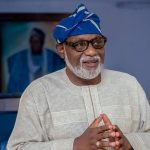
In a concerning turn of events, the Nigerian government’s focus on the recent coup in Niger Republic has coincided with a further plummet of the naira in foreign exchange markets last week. The national currency hit an unprecedented low, with an exchange rate of N955 to US$1 on Thursday. This unsettling development has rippled through the business community, inducing panic, and has evoked apprehension among citizens. The nation now looks to President Bola Tinubu and the Central Bank of Nigeria (CBN) for swift and strategic measures to regain control of the currency and stabilize the economy.
The backdrop of this turmoil is marked by the aftermath of President Tinubu’s push for the CBN to merge exchange rates two months ago. Unfortunately, rather than achieving the intended goals of establishing a “realistic” rate and eliminating the arbitrage gap between official and informal market rates, the naira’s value has taken a sharp downward trajectory. The official exchange rate of N767.76/$ failed to prevent the gap from widening alarmingly, escalating from N100/$ to nearly N200/$.
With no effective economic management team, coherent direction, or functional cabinet in place, and an absence of regulatory agency reforms, the naira’s freefall is exacerbated by soaring inflation and economic contraction. Unless immediate measures are taken, the naira is on the verge of crossing the N1,000/$ threshold, raising dire concerns that the CBN’s control could slip away, yielding grave consequences. The International Monetary Fund (IMF) has added to the prevailing unease by highlighting the challenges posed by existing “loose fiscal and monetary policies,” which hinder naira stabilization efforts.
Wale Edun, a longstanding economic advisor to President Tinubu and a nominated minister, has set a more prudent N700/$ as a viable exchange rate. According to Edun, the current higher rates lack grounding in the fundamentals of the economy. Regrettably, The Economist Intelligence Unit’s projection of a N1,000/$ rate persisting until 2027 now seems overly optimistic, given the unfolding circumstances. The situation could potentially deteriorate well before the projected timeline.
The underlying causes of this crisis are multifaceted. Supply limitations stem from dwindling non-oil export earnings, while artificial demand is driven by speculators, hoarders, and unchecked money laundering activities by both state and non-state actors. The market is being propelled by ill-gotten naira from politicians, public office holders, criminals, and connected contractors, exploiting weak oversight of deposit money banks and bureaux de change. Consequently, the market is under the influence of these sources rather than legitimate commercial entities or producers.
To steer the nation away from impending hyperinflation and to reclaim command over the naira, President Tinubu must shift from impulsive and uncoordinated decisions to a comprehensive set of strategic economic policies. The formation of a robust Economic Management Team (EMT) and the inclusion of economists and technocrats are pivotal steps in this process, which will provide a more balanced perspective compared to the current assortment of politicians nominated as ministers.
To regain control of the naira and prevent further slide, the CBN should consider temporarily injecting funds into the forex market. Subsequent actions should involve curbing the activities of Bureaux de Change (BDCs) and errant banks involved in round-tripping and illegal arbitrage. Enhanced collaboration with regulatory, anti-corruption, and law enforcement agencies is crucial for effective monitoring of market operators, and swift and stringent punishment for any violations.
In the face of challenges such as high unemployment, inflation, production contraction, and dwindling public revenues, a robust stimulus strategy is imperative for recovery. Sectors critical to the nation’s well-being, such as agriculture, pharmaceuticals, transportation, and small businesses, should be safeguarded through targeted measures. Focused attention on Small and Medium Enterprises (SMEs), including power supply subsidies, access to low-interest credit, and relief from burdensome taxes and levies, is a cornerstone of this recovery effort.
Tough decisions undoubtedly lie ahead, but their execution must be grounded in meticulous analysis and preparation. The scarcity of dollars has relinquished supply control to black-market operators, undermining efforts to reduce the gap between the official Importers and Exporters window and parallel market rates. A temporary market reinforcement, channeled toward legitimate businesses, is advisable to stem the naira’s downward spiral and preserve its value over a short period.
The Nigerian economy is at a critical juncture, demanding undivided attention and meticulous planning to prevent a catastrophic collapse. President Tinubu must embrace a measured approach and desist from hasty decisions to chart a sustainable course forward.





Comments are closed.